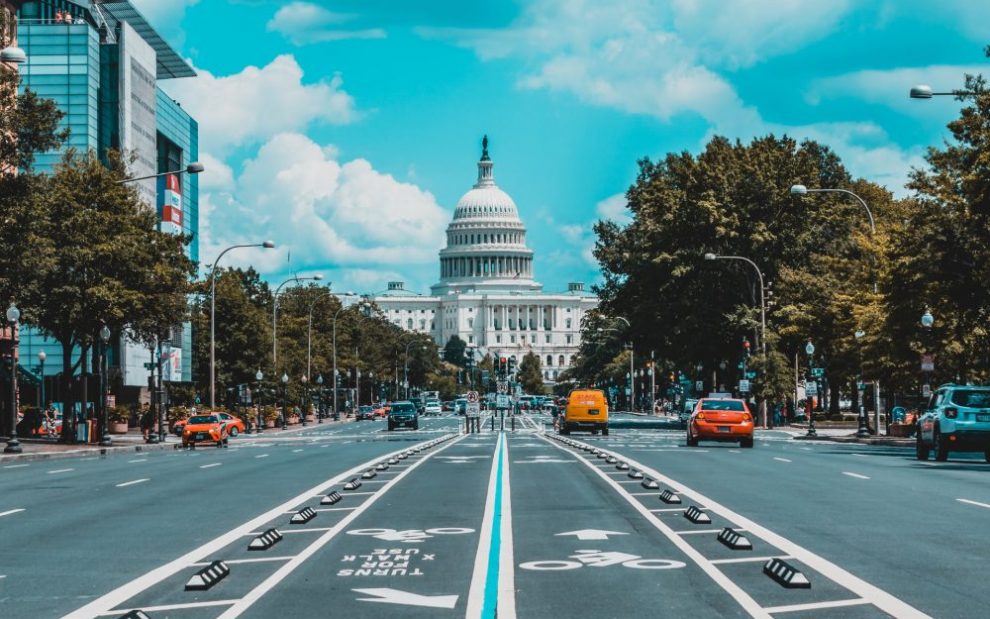I write this in the month of January, at the turn of the calendar and the beginning of a new year. When you read this, we will be in the beginnings of new national leadership with the inauguration of a new U.S. president. Beginnings are a time of looking back with sober insight and looking ahead with new resolve.
Looking back, we see a country beset with marked divisions and stark polarizations. The year 2020, with its multiple challenges of a global pandemic and its unprecedented disruptions of education, employment, and daily life; protests against racial injustice that rocked our cities and towns; and bitter political campaigns that culminated in horrific scenes of violent uprising and insurrection at the U.S. Capitol: All of these revealed the fundamental unresolved questions that haunt our nation. Will we strive to be a nation of “liberty and justice for all”? Or only for some? For only those who look like us, pray like us, and agree with us? For only those who have access to money and the promise of social success? For those who fit the definition of a golden-era American Dream that was always more legend than reality? In short, who counts as “all”?
Or, to put this more biblically, the questions we face are these: Am I my brothers’ and sisters’ keeper? And, who is my neighbor? Removing the limits we place upon personal compassion and social concern is the fundamental challenge facing our country and especially those who call ourselves Christians.
Looking forward with new resolve, let’s ponder the question: How would our society look if our national decisions and social policies—if our answers to the Bible’s questions—were informed by Catholic social teaching’s bedrock conviction: the equal sacred dignity of every human person as the beloved image of God.
When I teach this conviction to my students, I tell them to imagine that everyone they encounter has a sanctuary lamp burning in front of them, a reminder that this person bears the image of God. The sanctuary lamp signals that the worth of human persons is not something we decide to give to them. That is not within our power. It is already instilled by God. Our responsibility is not to grant worth to others but rather to recognize, nurture, protect, and defend the intrinsic dignity, value, and worth that already has been conferred.
I then stress to my students that human dignity admits of no small print, no exclusions, no “buts.” God grants it to all regardless of any human characteristic, achievement, or lack thereof and regardless of race, gender, social class, sexual orientation, national residence, citizenship status, or geographic location. Every human person has equal human dignity. All means all.
The worth of human persons is not something we decide to give them.
If we were to approach the new beginnings of our national life together informed by this core belief in the equal human dignity of every person, what new directions might we pursue? Given the many challenges we face, it’s impossible to give an exhaustive answer. But this much is clear: We are summoned to commit our nation and our church to the pursuit of equal justice for all; decent housing for all; quality education for all; effective health care access for all; and robust protection of voting access for all.
What would our society then look like? Like a less imperfect approximation of the reign of God where the last will be first, where the hungry are fed, where the stranger is welcomed, where the homeless are sheltered, where the least among us are treated as Christ who—as St. Teresa of Calcutta declared—comes “in the distressing disguise of the poor.”
Will we be a nation of “liberty and justice for all”? Our faith’s conviction of the equal dignity of every person provides a valuable orientation as we confront our nation’s pressing challenges with new resolve.
This article also appears in the March 2021 issue of U.S. Catholic (Vol. 86, No. 3, pages 40-41). Click here to subscribe to the magazine.
Image: Unsplash/Jorge Alcala














Add comment